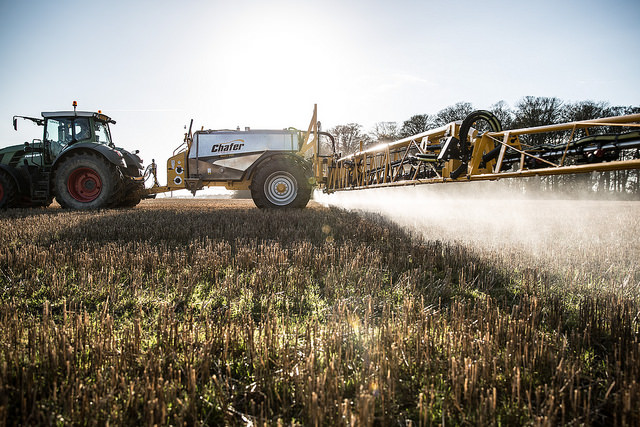Jan Speaks On GMOs & Glyphosates
Recently a farmer shared on Facebook that he used glyphosates and would share his thoughts on his practices. We always want to support our local farmers, but sharing our concerns and issues is critically important in making the planet safer for everyone.
This week we have posted blogs that are actual letters or papers written by us in response or questions on our health. This is Jan’s response.
Dear Farmer,
I read your comment about Glyphosate and thought I would share with you what I know. I have been following several researchers in the field of glyphosates over the past four year. Glyphosates are an herbicide – which means to kill plants. Pesticides and herbicides can be effective tools in ridding a crop of detrimental insects and weeds, but they also have harmful consequences to non-targeted organisms such as beneficial bacteria. Bacteria in the soil helps restore nutrients and water and also filters pollutants, helping plants use the nutrients in the soil to grow. Like our guts healthy soil holds millions of microorganisms, including bacteria. Glyphosates kill these bacterias. The toxicmicrobial effects of glyphosate are cumulative with continued use.
No one will argue that proponents of healthy lifestyle include findings on the importance of healthy bacteria and the role they play in our autoimmune system. Studies can be alarming and also very insightful and these results are getting the attention of even the most skeptical medical professionals.
1. Stephanie Sennet is a leading expert in Massachusetts as a faculty member at MIT
and her research is compelling on why we should be avoiding glyphosates:
“Glyphosate’s claimed mechanism of action in plants is the disruption of the shikimate pathway, which is involved with the synthesis of the essential aromatic amino acids, phenylalanine, tyrosine, and tryptophan. The currently accepted dogma is that glyphosate is not harmful to humans or to any mammals because the shikimate pathway is absent in all animals.
However, this pathway is present in gut bacteria, which play an important and heretofore largely overlooked role in human physiology through an integrated biosemiotic relationship with the human host. In addition to aiding digestion, the gut microbiota synthesize vitamins, detoxify xenobiotics, and participitate in immune system homeostasis and gastrointestinal tract permeability. Furthermore, dietary factors modulate the microbial composition of the gut.”
2. D.M. Huber, of Perdue University, also writes extensively about the science behind the glyphosates and how it works. In his summary:
“Extended use of glyphosate can significantly increase the severity of various diseases by impacting all four of the interacting components of the “plant disease diamond” comprised of the plant, abiotic and biotic environments, and pathogen (Fig. 8). Reduced growth, impaired defenses, impaired uptake and translocation of nutrients, and altered physiology of plants by glyphosate can affect susceptibility or tolerance to various diseases. Glyphosate chelation of nutrients in the plant and soil can render those nutrients immobile and unavailable for plant use or uptake, while toxicity to essential synergistic and beneficial soil organisms (Purcell, 2001) further reduces availability of nutrients that are critical for a plant’s physiological defense to disease. Glyphosate stimulation of fungal growth and enhanced virulence of pathogens such as Fusarium, Gaeumannomyces, Phytophthora, Pythium, and Xylella can have serious consequences for sustainable production of a wide range of susceptible crops and lead to the functional loss of genetic resistance that is dependent on metabolites through the shikimate pathway (Larson et al., 2006). Nutrient balance is important because each element functions as part of a delicately balanced, interdependent physiological system with the plant’s genetics and the environment.”
Also I encourage you to read Dr. Swanson, who has a Ph.D. in physics and worked as a staff scientist for the United States Navy, is the author of over 30 scientific publications.
I guess for me is the bottom line in why would we trust the makers of glyphosates?
Roundup is an herbicide developed and sold by Monsanto Co. Their track record is terrible in providing accurate information on their products. They have been convicted of fabricating false research documentation that claims Agent Orange has no negative health affects. They have been charge by the country of Columbia that roundup is destroying food crops, water sources and protected areas in the Andes. In India , over 125,000 suicides took place by farmers who had been convinced by Monsanto to buy the more expensive GE cotton seeds as results would bring higher yields and better cotton.
But, the reverse is what happened: Crop yields for GE cotton were 5 TIMES LESS than traditional Indian cotton and the income from GE cotton was 7 TIMES LESS than conventional cotton, due to Monsanto’s cotton having lower quality short fibers. As a result of the insurmountable deluge of debt accrued from paying more for the GE seeds and having a weak crop, over 125,000 Indian farmers committed suicide rather than face the debt! The CDC lists 112 law suits against small farmers in the U.S.
There is nothing good about the long term effects of the use of glyphosates as far as I can tell and in the mean time we are compromising the health of not only our fields and soils, but our own health.
I don’t want to rant about Monsanto, but rather I would like to see farmers find ways to keep glyphosate out of our soil and water.
I am happy to have dialogs on how we can all do better.
I always want to work with our farmers at any level.
Jan Buhrman
 The Diaeta Way
The Diaeta Way

